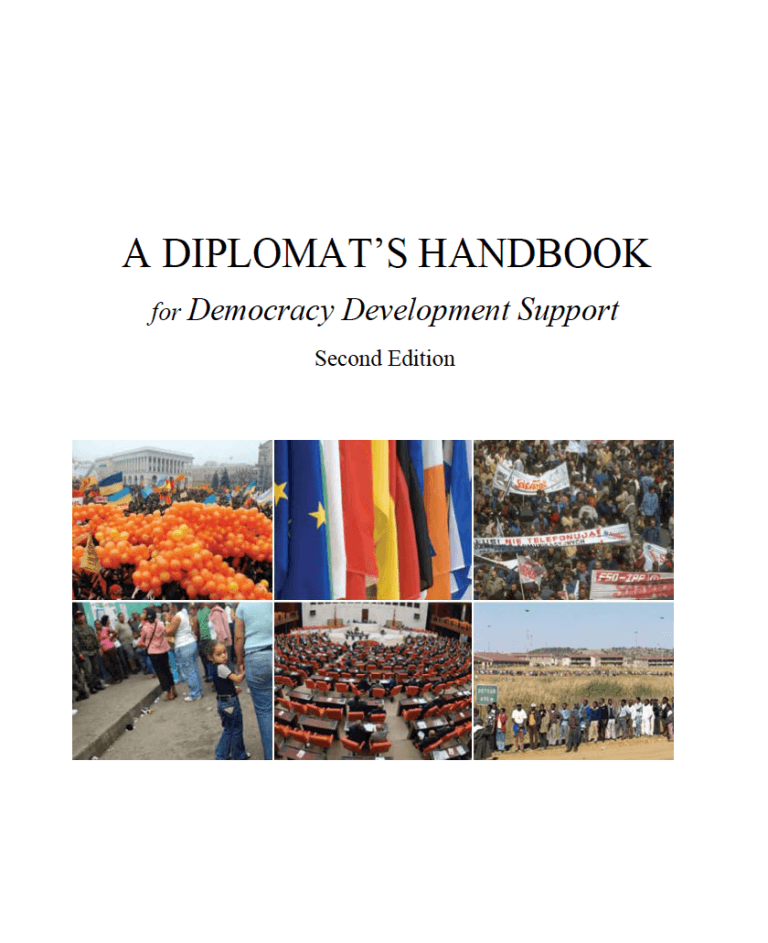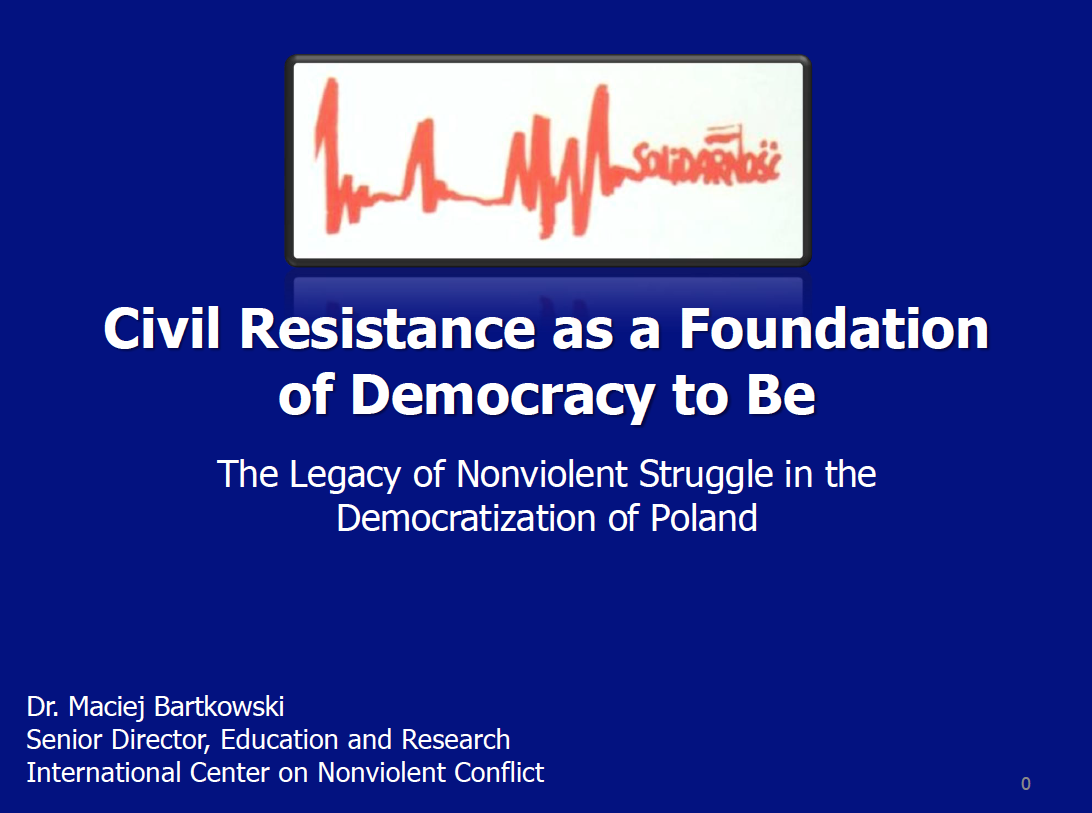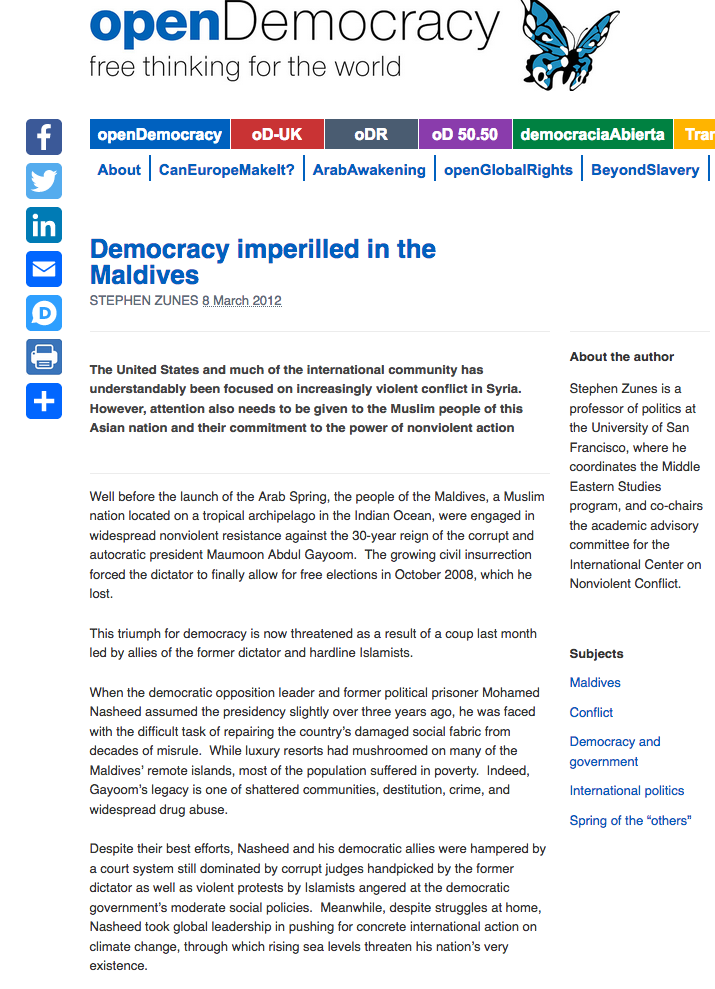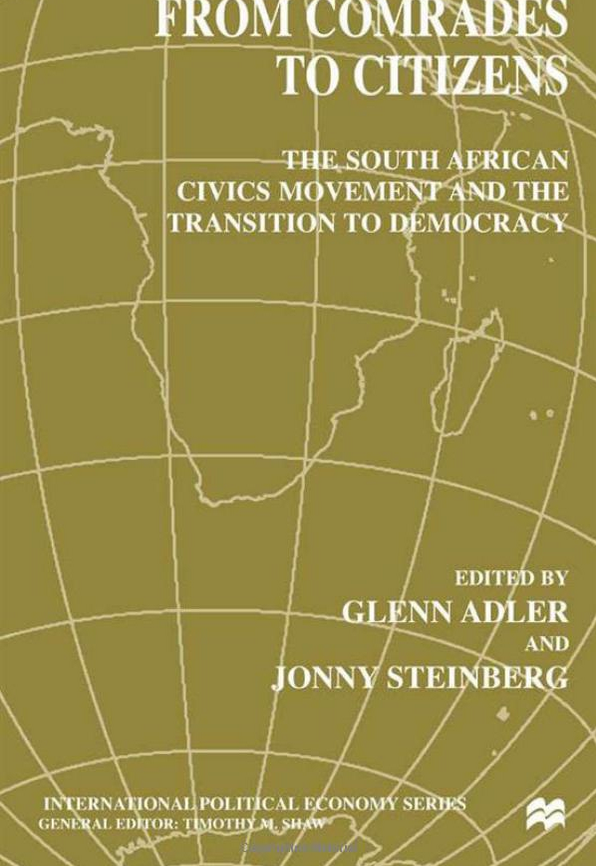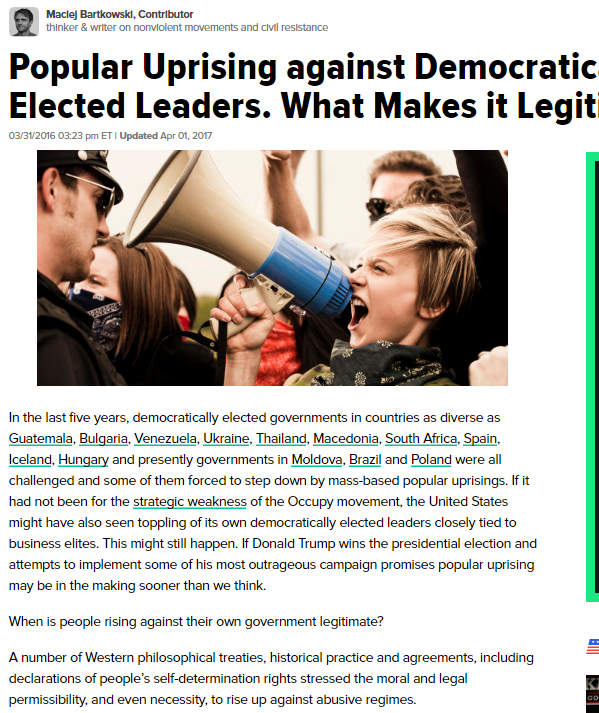
Popular Uprising Against Democratically Elected Leaders: What Makes It Legitimate?
In the last five years, democratically elected governments in countries as diverse as Guatemala, Bulgaria, Venezuela, Ukraine, Thailand, Macedonia, South Africa, Spain, Iceland, Hungary and presently governments in Moldova, Brazil and Poland were all challenged and some of them forced to step down by mass-based popular uprisings. If it had not been for the strategic weakness of the Occupy movement, the United States might have also seen toppling of its own democratically elected leaders closely tied to business elites. This might still happen.
The Huffington Post, March 2016 | Updated April 2017
